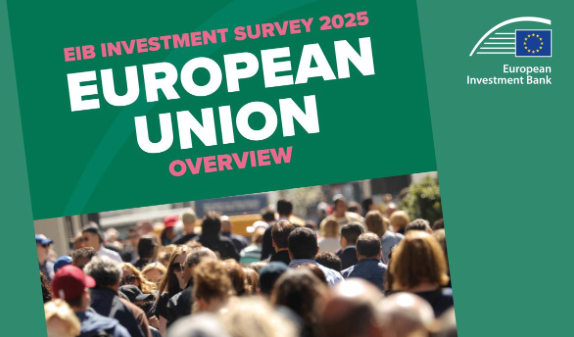VC vs PE: What’s the Right Fit for Your Business?
- benjamin2564
- Aug 11, 2025
- 5 min read
Updated: Aug 12, 2025
Choosing the right external capital partner is a critical decision for any business, profoundly impacting its growth trajectory, operational control, and long-term vision. While both Venture Capital (VC) and Private Equity (PE) firms provide private financing, they target vastly different types of companies at distinct stages of their lifecycle, offering varying levels of involvement and seeking different returns. Understanding these fundamental differences is crucial for determining which type of investor is the right fit for your business.
Venture Capital (VC): Fueling High-Growth Innovation
Venture Capital firms typically invest in early-stage, high-growth potential companies, often in innovative sectors like technology, biotechnology, and clean technology [Business.com, BDO Ireland, Calkins Law Firm, Mergers & Inquisitions]. VC can be considered a subset of private equity, specifically focusing on startups and nascent businesses that may not yet be profitable but possess a disruptive idea or technology [ScaleX Invest, BDO Ireland].
Ideal Fit for VC Funding:
Early to Growth Stage: Your company is typically in its seed, early, or expansion stage, often with a proven product-market fit but not yet consistently profitable or cash-flow positive [BDO Ireland].
High Growth Potential: You aim for rapid, exponential growth and have the potential to disrupt an industry or create new markets [Business.com, FD Capital, Equivator]. VCs tolerate high risk for the chance of significant, often exponential, returns [FD Capital, Azarian Growth Agency].
Innovative Business Model: Your business often involves unique or innovative products/services, frequently within the tech, biotech, or cleantech sectors [BDO Ireland, Peak.Capital, Mergers & Inquisitions].
Funding Needs: You require capital for product development, talent acquisition, customer acquisition, or rapid market expansion [Sprintlaw UK]. Investment sizes typically range from a few hundred thousand to tens of millions of euros per round [ScaleX Invest, Sprintlaw UK].
Ownership & Involvement: VCs generally take a minority equity stake (e.g., 10-30%, less than 50%) and provide strategic advice, mentorship, and industry connections, but typically maintain a more hands-off approach in daily operations [DWF Group, Sprintlaw UK, Peak.Capital, Corporate Finance Institute, Equivator, Finder].
Longer Horizon: VC investments often have a longer investment horizon (5-10+ years), as early-stage companies require significant time to mature and achieve liquidity events like an IPO or acquisition [M Accelerator, FORDATA, FD Capital, Equivator].
Private Equity (PE): Optimizing Established Businesses
Private Equity firms, in contrast, generally target more mature, established companies with proven business models, stable cash flows, and a track record of profitability [ScaleX Invest, DWF Group, Sprintlaw UK, Johnston Allison Hord, Wall Street Prep, Vestlane, Corporate Finance Institute, Calkins Law Firm, Equivator, Finder]. Their investments are typically larger and often involve significant control.
Ideal Fit for PE Funding:
Mature & Established: Your company has a consistent revenue stream, stable operations, and may be looking for capital to scale up, improve operational efficiencies, consolidate industries, or undergo restructuring [Shopify, Corporate Finance Institute, Calkins Law Firm]. PE firms often look for companies in more stable or fragmented industries such as manufacturing, consumer goods, business services, or healthcare [Sprintlaw UK, Mergers & Inquisitions].
Substantial Capital Needs: PE investments are typically much larger, often ranging from hundreds of millions to billions of euros, often involving buyouts of entire businesses [ScaleX Invest, Sprintlaw UK, Calkins Law Firm, Growth Equity Interview Guide, Finder].
Ownership & Involvement: PE firms typically seek a majority or controlling stake (51% or more, sometimes 100% in buyouts) [DWF Group, Sprintlaw UK, Peak.Capital, Calkins Law Firm, Equivator, Finder, Mergers & Inquisitions]. They tend to be highly hands-on, actively involved in management, and may spearhead operational improvements, cost-cutting, or even leadership changes to drive profitability and value [Johnston Allison Hord, Corporate Finance Institute, M Accelerator, Equivator].
Shorter Horizon & Predictable Returns: PE investments generally have a shorter investment horizon (3-7 years) and aim for more predictable, consistent returns, often through operational improvements, financial engineering (e.g., debt pay-down), and eventual sale to a strategic buyer or IPO [M Accelerator, FORDATA, FD Capital, Equivator, Azarian Growth Agency, Mergers & Inquisitions]. PE often uses a combination of equity and debt in their financing structures [Corporate Finance Institute, Growth Equity Interview Guide, Finder].
Lower Risk Tolerance: Compared to VC, PE firms are generally more risk-averse, investing in companies with established proof of their ability to generate money [Business.com, FD Capital].
The Blurring Lines
It's important to note that while the distinctions are clear, the lines between VC and PE can sometimes blur. Some PE firms are increasingly investing in growth-stage technology companies, traditionally a VC domain, while some VC funds are holding onto investments for longer periods, a strategy more common in PE [ScaleX Invest]. This reflects evolving investment strategies and market dynamics.
Which is the Right Fit for You?
The choice between VC and PE depends entirely on your company's current stage, growth aspirations, desired level of investor involvement, and willingness to cede control:
Choose VC if: You are an early-stage company with high growth potential, a disruptive innovation, and need capital to scale rapidly, but wish to retain majority control while benefiting from strategic guidance. You are comfortable with higher risk in pursuit of exponential returns.
Choose PE if: You are a mature, established business seeking substantial capital for operational improvements, restructuring, or consolidation, and are willing to give up a significant or controlling stake in exchange for hands-on operational expertise aimed at optimizing profitability and preparing for a strategic exit within a defined timeframe.
By carefully assessing your business's needs, stage, and strategic objectives, you can align with the type of private capital that offers the optimal fit for your future success.

Sources:
· Private Equity vs. Venture Capital: Key Differences & Similarities - Growth Equity Interview Guide




Comments